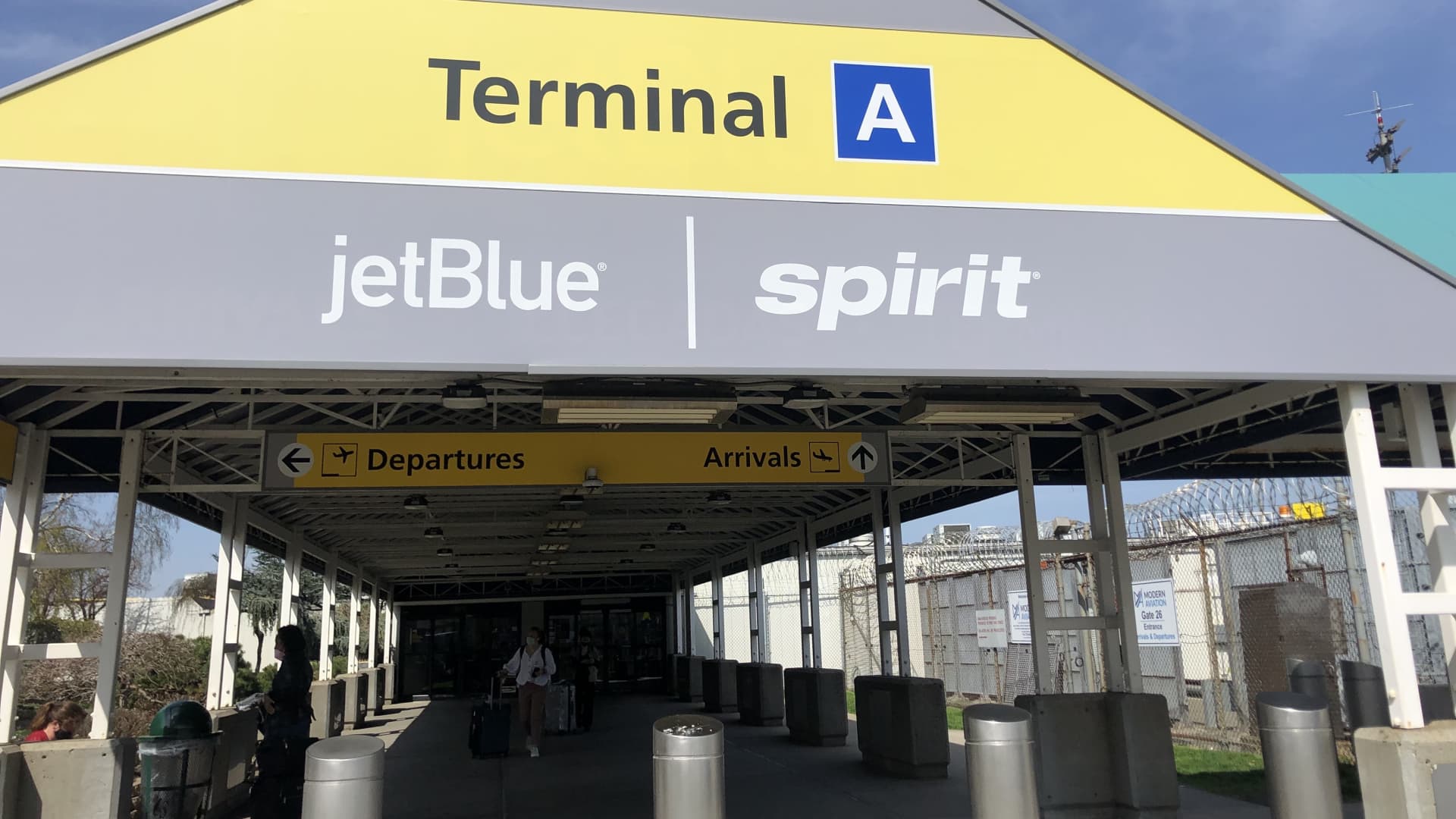A federal judge blocked JetBlue Airways‘ purchase of budget rival Spirit Airlines after the Justice Department sued to stop the merger, alleging it would drive up fares for some of the most price-sensitive consumers.
JetBlue’s proposed $3.8 billion purchase of discounter Spirit would have produced the country’s fifth-largest airline, a deal the carriers said would help them better grow and compete against larger rivals like Delta and United.
“JetBlue plans to convert Spirit’s planes to the JetBlue layout and charge JetBlue’s higher average fares to its customers,” U.S. District Court Judge William Young wrote in his decision. “The elimination of Spirit would harm cost-conscious travelers who rely on Spirit’s low fares.”
The decision, handed down Tuesday, marks a victory for a Justice Department that has aggressively sought to block deals it views as anticompetitive.
The DOJ alleged in its lawsuit, filed in March, that JetBlue’s acquisition of the budget airline would force “tens of millions” of passengers to pay higher fares by eliminating Spirit and “about half of all ultra-low-cost airline seats in the industry.”
Spirit shares plunged after the ruling and were down more than 50%, while JetBlue’s stock gained about 5%.

JetBlue and Spirit said in a joint statement that they disagreed with the ruling and were evaluating next steps.
“We continue to believe that our combination is the best opportunity to increase much needed competition and choice by bringing low fares and great service to more customers in more markets while enhancing our ability to compete with the dominant U.S. carriers,” the carriers said.
A different U.S. District Court judge in Massachusetts sided with the Justice Department last year to block JetBlue’s regional alliance with American Airlines in the Northeast, a partnership that allowed the carriers to coordinate routes and schedules.
JetBlue and Spirit said Tuesday that divestiture and others “removed any reasonable anti-competitive concerns that the Department of Justice raised.”
The latest decision leaves New York-based JetBlue grappling with next steps, tasking incoming CEO Joanna Geraghty with steering the airline on a new path. Geraghty was announced as successor to CEO Robin Hayes after he said earlier this month that he would retire.
JetBlue argued access to Spirit’s similar fleet of Airbus planes would allow it to grow quickly when planes and pilots are in short supply, growth it said it needs to compete against bigger airlines. The carrier operates in highly congested airspace in New York and other cities, and had planned to use Spirit as a way to gain access to more routes and travelers.
Years of previous consolidation left United, Delta, American and Southwest in control of about three-quarters of the domestic market.
JetBlue planned to remodel Spirit’s yellow planes by removing the branding and seats from the tightly packed jets to provide more of a full-service model.
“Although Spirit’s yellow aircraft livery would not immediately be repainted as JetBlue planes, at the moment the merger is consummated, Spirit and JetBlue would no longer be competitors,” Young wrote in his decision.
Spirit has grown rapidly in recent years by offering cheap fares and fees for everything else from seat assignments to carry-on luggage.
Don’t miss these stories from CNBC PRO:
- Tesla versus BYD: Analysts prefer one of them — giving it up to over 70% upside
- Goldman says small caps to beat large caps this year. 10 cheap smaller stocks to buy
- DoubleLine’s Gundlach sees ‘very painful’ economic downturn, S&P 500 may be forming ‘double top’
- ‘One of the best valuations for AI’: Buy the dip in this Big Tech stock, strategist says
